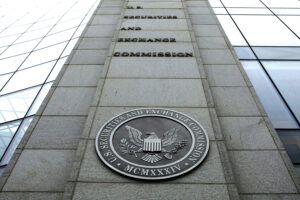Funds incorporating ESG factors are subject to enhanced disclosure requirements, the Securities and Exchange Commission (SEC) has announced.
In the latest amendments to the Investment Company Act ‘names rule’ the regulator has incorporated ESG funds into its ‘names rule’, meaning 80% of their investments must contain that thematic focus.
“As the fund industry has developed over the past two decades, gaps in the current names rule may undermine investor protection, and these final rules will help ensure that a fund’s portfolio aligns with a fund’s name,” said SEC chair, Gary Gensler.
Additionally, a new requirement has been introduced that requires a fund review its portfolio assets’ treatment under its 80% investment policy at least quarterly and will include specific timeframes for getting back into compliance if a fund departs from the policy.
Effective 60 days after publication in the Federal Register, the amendments will mean fund groups with net assets of $1bn or more will have 24 months to comply, while fund groups with net assets of less than $1bn will have 30 months.
For Maria Lettini, CEO of the US Sustainable Investment Forum, the final rule brings further clarity to the marketplace around investment company names.
“Fund names offer important signalling for investors in assessing their investment options, and the final rule from the SEC succeeds in combating misleading fund names while providing additional transparency for investors and important guidance for funds,” said Lettini.
“The SEC’s final names rule expands the 80% investment policy requirement to also apply to the focus of the fund and the terms used in its name and enhances prospectus disclosures related to terms used in the fund name. While not limited to funds with sustainable investing names, industry observers suggest the rule could be instrumental in addressing concerns about greenwashing.”
The announcement comes at a crucial time for the SEC, with further reforms expected in relation to the strengthening of climate risk disclosures. Commentators expect the Commission to face multiple lawsuits following their release, with the SEC accused of overstepping its statutory remit to protect capital markets.
Of particular issue for some pundits are proposals to force companies to disclose their Scope 3 emissions, as well as definitions over the concept of materiality. As a consequence of potential lawsuits over the issue, Oliver Carpenter, director if environmental risk analytics at Risilience, noted that corporates will inevitably face a prolonged period of uncertainty on the scope and stringency of reporting rules before being required to file for the first time, probably no earlier than 2025.
